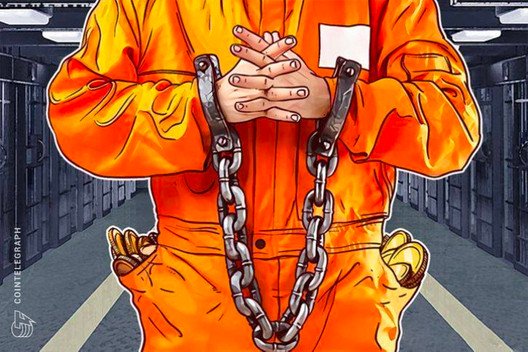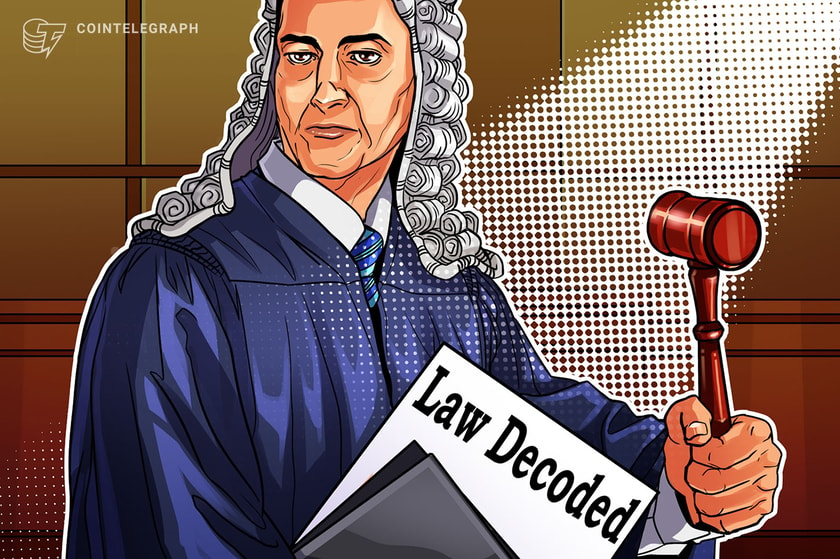Capture the industry? Token IPOs aim for $200T global capital market
Earlier in May, INX Limited — a Gibraltar-based blockchain trading platform — announced the completion of its INX token sale event, which took place via an initial public offering. The event marked the first time that the United States Securities and Exchange Commission approved a crypto-asset IPO.
The SEC has been consistent in its characterization of most crypto assets as securities. Indeed, this stance has been at the forefront of the commission’s campaign against startups that issued digital assets during the initial coin offering mania of 2017 and 2018.
Regulated security token offerings, or STOs, have since been hailed as the next big thing for token-based fundraising, with ICOs regarded as anathema by many financial regulators around the world. Indeed, authorities in several countries have created legal frameworks for regulated capital-raising activities via digital asset tokens.
INX token $125-million IPO
As previously reported by Cointelegraph, INX announced on May 3 that it had completed its $125-million SEC-approved token IPO. The news marked an end to the novel token offering process, which began back in August 2020.
At the time, the company was reportedly looking to raise $117 million via an STO approved by the SEC. In the end, the blockchain trading outfit surpassed its initial target by over $8 million, with more than 7,200 retail and institutional investors participating in the digital token IPO.
The actual public token IPO round grossed about $85 million, adding to the $7.5 million scooped up during the private sale and another $32.2 million from a private equity placement on the Toronto Stock Exchange. INX will reportedly utilize the funds raised to establish its planned trading platform for crypto and security tokens.
Indeed, INX reportedly envisions a situation where its platform acts as the listing partner for U.S. firms looking to fundraise via STOs. Thus, apart from providing trading services for digital assets, the planned INX exchange will also allow clients to issue and sell security tokens.
In a note to Cointelegraph, Shy Datika — co-founder of INX — revealed that the company already had 30 firms in the pipeline waiting to launch their own security tokens once its trading platform goes live. According to Datika, digital-asset adoption is gaining ground among institutional investors.
INX’s token IPO also likely provides first-hand proof that cryptocurrencies are viable for capital formation. As part of its announcement earlier in May, the blockchain trading firm revealed that half of the funds raised during the token IPO came from crypto payments in Bitcoin (BTC), Ether (ETH) and the USD Coin (USDC) stablecoin.
Indeed, INX attributed part of the success of the IPO to the fact that both retail and institutional investors from 75 countries around the world could participate via crypto payments despite “blue sky restrictions” — state-level anti-fraud laws in the U.S. that usually come into play for securities issuers with international subscribers.
In fact, INX reported at the time that over 61,000 investors expressed interest in the token IPO but were unable to invest due to the aforementioned constraints.
Digital securities at the heart of the new capital market
The global capital market, estimated to be worth about $200 trillion, is often seen as being ripe for crypto and blockchain disruption. From decentralized finance — also known as DeFi — primitives working toward on-ramps to interface with real-world assets to legacy financial institutions pivoting to adapting the novel tech to their existing protocols, the digitization of the equities market appears to be on the agenda for many stakeholders.
Datika also alluded to this emerging trend when announcing the completion of the token IPO, even highlighting the trend as a major part of the company’s ambitions. At the time, the INX executive remarked that the company envisioned a new paradigm that it called “Capital Markets 2.0,” where digital securities replace equities as capital-raising vehicles.
According to Datika, cryptocurrency exchanges will take center stage in this new paradigm as financial assets make the pivot to blockchain technology. Commenting on the potential for crypto and blockchain to make a significant dent in the global capital market, Douglas Borthwick, chief business officer of INX, told Cointelegraph:
“Global Capital Markets are currently stuck in a time warp. Take U.S. equities as an example. They are open 5 days a week from 9.30 AM until 4 PM. Meanwhile, digital securities trade 24/7/365. U.S. equities require a Transfer Agent, whilst Digital Securities settle on the blockchain with immutable ownership. U.S. equities can be used as a tool for money laundering. Digital Assets can be built with autonomous KYC [Know Your Customer] and AML [Anti-Money Laundering] through whitelisting on the blockchain.”
However, illiquidity remains a major issue to be solved before security tokens can carry any significant weight to support inroads into the global capital market. For Jenny Q. Ta, CEO of blockchain commerce platform CoinLinked, the solution to this problem is to have more security tokens on the market. In a conversation with Cointelegraph, the Wall Street veteran opined:
“Not only do we need the quantity of security tokens to be in the market but it is also as crucial to have quality tokens. The space definitely needs a lot more security tokens to be listed for liquidity not just in the U.S. but globally, so, realistically it is going to take some time.”
Thus, with liquidity a major choke point for STOs, it is perhaps unsurprising to see an uptick in such offerings in recent times. This trend has also been encouraged by a raft of favorable regulations in major economic jurisdictions across Asia and Europe, with regulators apparently okay with token offerings as long as issuers follow established regulatory provisions.
Back in December 2020, the SEC stated that broker-dealers of security tokens will enjoy a five-year enforcement action holiday. In Germany, financial regulators officially recognized digitized securities, and Swiss authorities are introducing full-spectrum crypto regulations covering several aspects of the market, including STOs.
STO highlights from around the world
The progress in this area is not contained just within the borders of the United States. In April, Japanese financial giant SBI launched its first retail STO in Japan — corporate bonds issued by SBI Securities. The event showcased the ability of blockchain-based systems to replace the usual central securities depository infrastructure required for the issuance of securities.
SBI’s retail STO is also a testament to Japan’s somewhat mature crypto and blockchain laws that arguably provide a strict but clear-cut set of rules for participants. The country even has its own self-regulatory organization for STO matters, the Japan Token Offering Association.
However, April’s STO was not SBI’s first foray into the arena. In October 2020, the Japanese financial conglomerate announced plans to allot security token shares of SBI e-Sports, the company’s esport gaming subsidiary.
In March, Canadian blockchain technology firm Blockstream launched a security token tied to the company’s Bitcoin mining operations. Apart from offering exposure to Bitcoin mining stocks, the Blockstream Mining Note security token also grants ownership of the mined BTC after a three-year vesting period.
Blockstream’s security token shows that STOs can even be a pathway for direct cryptocurrency ownership for investors.
Other recent STO issuers include supercar manufacturer Mazzanti Automobili and Japanese bank Sumitomo Mitsui, which partnered with SEC-registered digital securities issuance platform Securitize to launch what it said was Japan’s first security token compliant with the country’s Financial Instruments and Exchange Act.
European banking giant Societe Generale also took its blockchain adoption drive beyond digital bond issuance by launching its first security token back in April. The bank chose Tezos as the blockchain of choice.
At the time, Jean-Marc Stenger, the head of the bank’s Forge fintech subsidiary, told Cointelegraph that Societe Generale’s security token efforts were blockchain agnostic. Indeed, Stenger added that the company has plans to utilize between three and five public networks for security token issuance.









